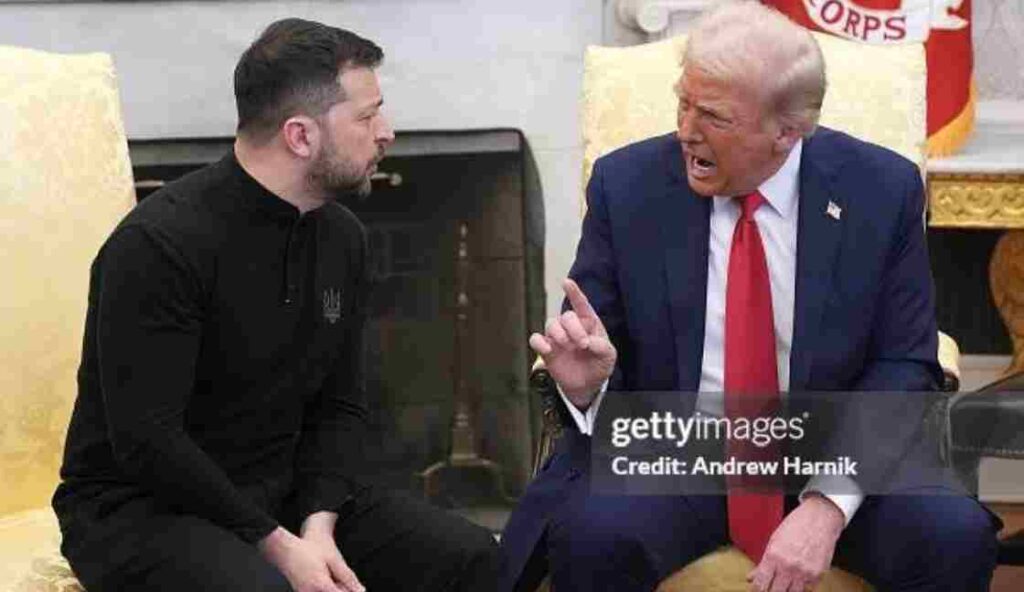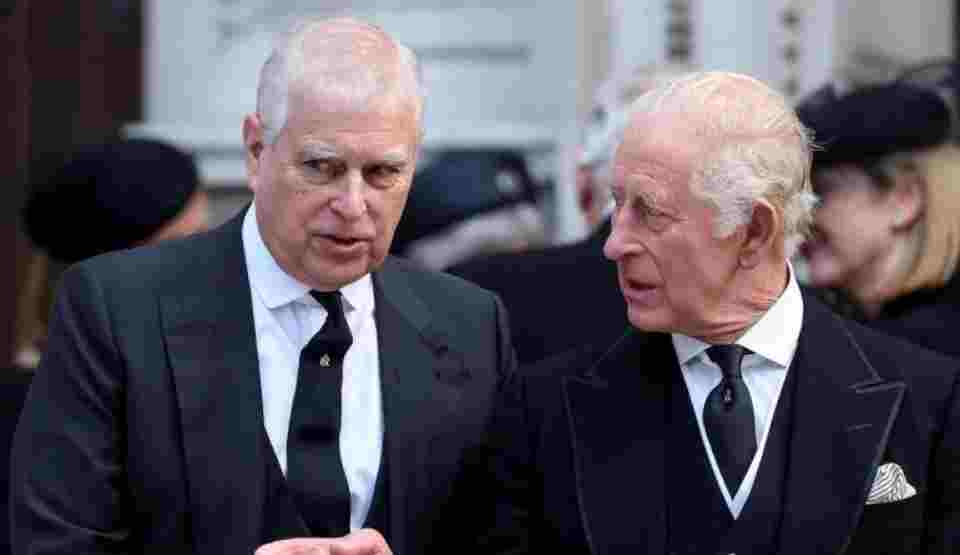By CEO and Editor-in-Chief, Tab2Mag Daily

Asif Ghazali
A Dramatic Shift That Reveals More About Politics Than Strategy
President Donald Trump’s Tuesday declaration that Ukraine can “win back all territory” from Russia represents an extraordinary pivot from his previous stance advocating territorial concessions. This dramatic reversal, coming just weeks after his controversial Alaska summit with Vladimir Putin, exposes the complex interplay between geopolitical reality, domestic politics, and Trump’s transactional approach to international relations.
The Timeline of a Presidential Flip-Flop
The story provided contains several concerning inaccuracies that must be addressed. Contrary to its claims, Zelenskyy met with Trump in February during a tense encounter, but there’s no evidence he was “thrown out” of the White House. More significantly, Trump met Putin in Alaska in August, not “last month”, and the meeting failed to produce any breakthrough on Ukraine.
These factual errors aside, Trump’s shift is real and significant. During his UN General Assembly appearance, Trump endorsed NATO countries shooting down Russian aircraft entering their airspace and criticized NATO members for still buying Russian energy, saying “they’re funding the war against themselves” – language markedly different from his earlier conciliatory tone toward Moscow.
Multiple Motivations Behind the Reversal
Economic and Military Realities
The most charitable interpretation of Trump’s shift acknowledges genuine strategic considerations. Russia’s war machine is indeed straining under economic sanctions and military losses. Ukraine’s resilience has surprised many observers, including potentially Trump himself. When reality conflicts with initial assumptions, even the most stubborn leaders must occasionally adapt.
European Pressure and Alliance Management
Trump’s pivot coincides with intensified European engagement on Ukraine. His newfound alignment with European positions suggests that sustained diplomatic pressure from NATO allies may have influenced his thinking. However, this contradicts his longstanding criticism of European “free-riding” on American security guarantees.
Domestic Political Calculations
Perhaps most tellingly, Trump’s shift occurs amid growing bipartisan criticism of his perceived softness toward Putin. With an eye on the Nobel Peace Prize, Trump may be attempting to position himself as both peacemaker and defender of democratic values – a difficult balancing act that reflects his transactional approach to foreign policy.

The Pattern of Performative Toughness
The story correctly identifies Trump’s propensity for controversial statements and position reversals. His recent behavior – from inflammatory rhetoric about opponents to unsubstantiated claims about autism – reveals a president who thrives on attention and controversy. This context is crucial for understanding his Ukraine pivot.
Trump’s foreign policy has always been more performance than strategy. His “America First” rhetoric coexists with surprising deference to authoritarian leaders. His criticism of NATO spending contradicts his support for alliance solidarity. These contradictions suggest that his Ukraine stance may be more about domestic optics than geopolitical strategy.
The Credibility Problem
Trump’s flip-flop on Ukraine raises serious questions about American credibility and consistency. Allies and adversaries alike must wonder: Which Trump are they dealing with? The one who pressured Ukraine for territorial concessions, or the one now promising full territorial restoration?
Trump’s suggestion that Ukraine could win “with European support, with no mention of the US getting further involved” reveals another troubling aspect of his approach. He wants credit for supporting Ukraine without committing American resources – the foreign policy equivalent of having one’s cake and eating it too.
What This Means for Ukraine and Beyond
For Ukraine, Trump’s rhetorical support is welcome but insufficient. Kyiv needs consistent, reliable backing, not position papers that shift with political winds. The president’s track record suggests his current stance could change again if circumstances warrant.
For NATO allies, Trump’s pivot offers temporary relief but little long-term assurance. His fundamental skepticism of alliance commitments remains unchanged, as does his transactional view of international relationships.
For Putin, Trump’s inconsistency may actually be advantageous. Unpredictable American positions create opportunities for manipulation and wedge-driving between allies.
The Editorial Verdict
Trump’s Ukraine reversal reflects the tension between his instinctive isolationism and the reality of American global responsibilities. While his newfound support for Ukrainian territorial integrity is welcome, it comes wrapped in the same inconsistency and self-serving rhetoric that has characterized his foreign policy approach.
The president’s supporters will herald this as pragmatic flexibility; his critics will see opportunistic flip-flopping. Both are partially correct. What’s most concerning is the broader pattern: American foreign policy driven more by domestic political calculations and personal grievances than by strategic coherence or alliance commitments.
Ukraine deserves better than a president who treats its territorial integrity as a negotiating chip in his domestic political games. America’s allies deserve more consistent leadership than a administration that changes positions based on the latest political winds.
Trump’s Ukraine U-turn may be the right position, but it’s right for the wrong reasons. In international relations, motivation matters almost as much as outcomes. A foreign policy based on whim rather than principle is no foreign policy at all.
The question isn’t whether Trump’s current Ukraine stance is correct – it is. The question is whether anyone can trust it to last beyond his next political calculation or diplomatic meeting. Based on his track record, that trust would be misplaced.
Asif Ghazali
CEO and Editor-in-chief.
“The newspaper’s editorial policy is to remain neutral”.





